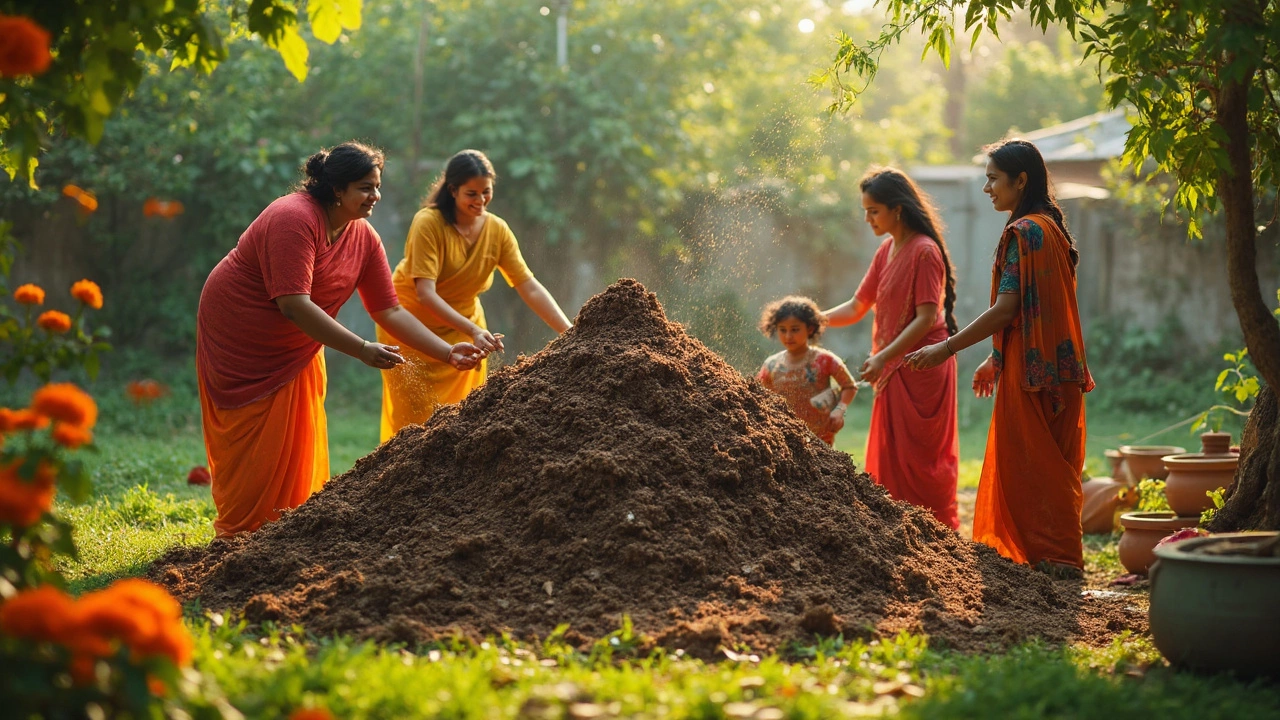Everything you need to know about compost activators—how they work, what ingredients speed up compost, and practical tips to supercharge your pile naturally.
Organic Waste: Turn Kitchen Scraps into Rich Soil for Indian Gardens
When you toss out vegetable peels, coffee grounds, or eggshells, you’re throwing away organic waste, biodegradable material from food and plants that can be turned into nutrient-rich soil. Also known as kitchen waste, it’s not trash—it’s the raw material for composting, the natural process of breaking down organic matter into fertilizer. In Indian homes, where half the garbage is food scraps, this waste doesn’t need to go to landfills. It can feed your plants instead.
Turning organic waste into compost doesn’t need fancy gear. You just need four things: greens (like fruit peels and tea leaves), browns (dry leaves or paper), air, and water. The right mix turns your scraps into dark, crumbly soil in weeks. Vermicomposting, using worms to speed up decomposition works great in small spaces like balconies and rooftops. It’s quiet, odor-free, and perfect for Indian apartments. Farmers and home gardeners alike use this method to cut fertilizer costs and grow stronger plants without chemicals. The soil you get is richer than store-bought mixes—it holds water better, feeds roots longer, and helps plants resist pests.
Organic waste isn’t just for compost. It’s the base for soil improvement in dense clay soils, the secret behind fast-growing 30-day crops, and the reason why balcony gardens thrive without synthetic inputs. If you’ve ever wondered why some gardens stay green all year while others struggle, the answer often lies in what’s buried beneath the surface—not bought at the store. The posts below show you exactly how to use what you already throw away: how to layer it, what to avoid, how to fix smelly piles, and which Indian kitchen scraps work best in monsoon or dry seasons. You’ll find real, tested methods from people who’ve done it in Delhi, Bengaluru, and Pune—not theory from faraway labs.
Want compost without breaking a sweat? This guide gets real about the absolute easiest ways to turn kitchen leftovers and yard scraps into rich soil. No fancy tools or complicated methods here—just straightforward hacks for people who want their scraps to turn into compost with almost zero effort. You’ll find which materials work best, surprising dos and don’ts, and how to avoid any major smells or critter issues. Ready to turn your trash into treasure while barely lifting a finger? You’re in the right place.
Creating your own compost can be a rewarding and eco-friendly endeavor, but not every kitchen scrap belongs in your compost pile. Some items can slow down composting, attract pests, or even introduce harmful toxins into your garden. Learning what to avoid is key to successful composting. Unearth the common misconceptions and practical advice to make your compost pile thrive.


